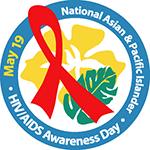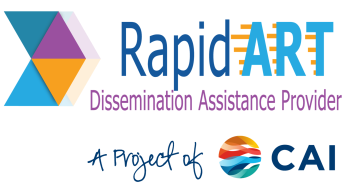
Asians and Native Hawaiian/Pacific Islanders each comprised less than 2% of Ryan White HIV/AIDS Program (RWHAP) clients (RWHAP Annual Client-Level Data Report, HRSA, 2023). In the U.S., about 2+% of HIV diagnoses in 2021 were Asian, Native Hawaiian, Pacific Islanders (CDC, 2023)
The percentage of clients receiving RWHAP HIV medical care who achieved viral suppression has increased steadily, from 69.5% in 2010 to 89.6% in 2022 (HRSA, 2023). Comparable improvements are seen among RWHAP Asian clients (78.8% to 94.8%) and Native Hawaiian/Pacific Islander clients (70.5% to 89.9%) (RWHAP Annual Client-Level Data Report, HRSA, 2023).
Rapid ART and Asian/Pacific Islanders
Getting people with HIV on antiretroviral treatment as soon as possible after diagnosis (rapid ART) is one of the strategies for ending the HIV epidemic: viral suppression improves the health of the patient, and individuals with sustained viral suppression do not sexually transmit HIV.
Asian Health Services, a federally qualified health center, has been delivering rapid ART since 2016. The agency, located in Oakland, California, is one of the sites reviewed by the HRSA project Rapid ART Dissemination Assistance Provider, which has identified model approaches for delivery of rapid ART. According to the Asian Health Services Rapid Start Site Profile, 95% of their Rapid Start clients received medication within three days of diagnosis and reached viral suppression by a median of 79 days.

Learn more about the Rapid ART DAP
Resources include: a compendium of best practices; service delivery models; implementation resources; and client and provider perspective videos.
TA and Training Resources
HRSA's HIV/AIDS Bureau and its partners have developed a number of resources to address HIV/AIDS among API populations.
- National HIV Curriculum: HIV in Racial and Ethnic Minority Populations
- Clinician's Guide to Working with Asian and Pacific Islanders Living with HIV
- BESAFE: A Cultural Competency Model for Asians and Pacific Islanders
- The Compendium of Culturally Competent Promising Practices: The Role of Traditional Health in HIV Clinical Management
